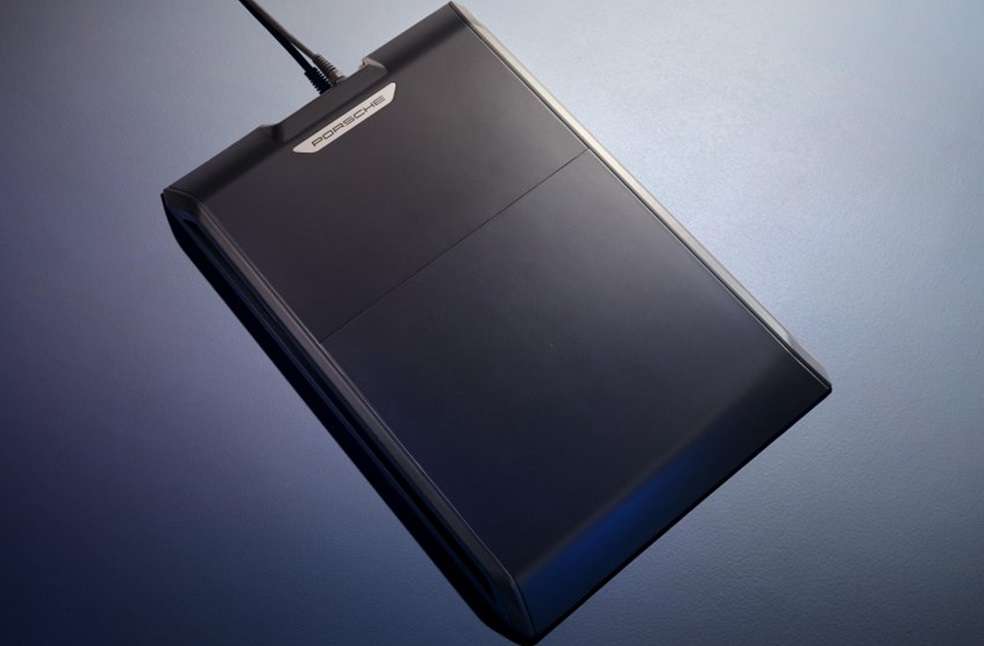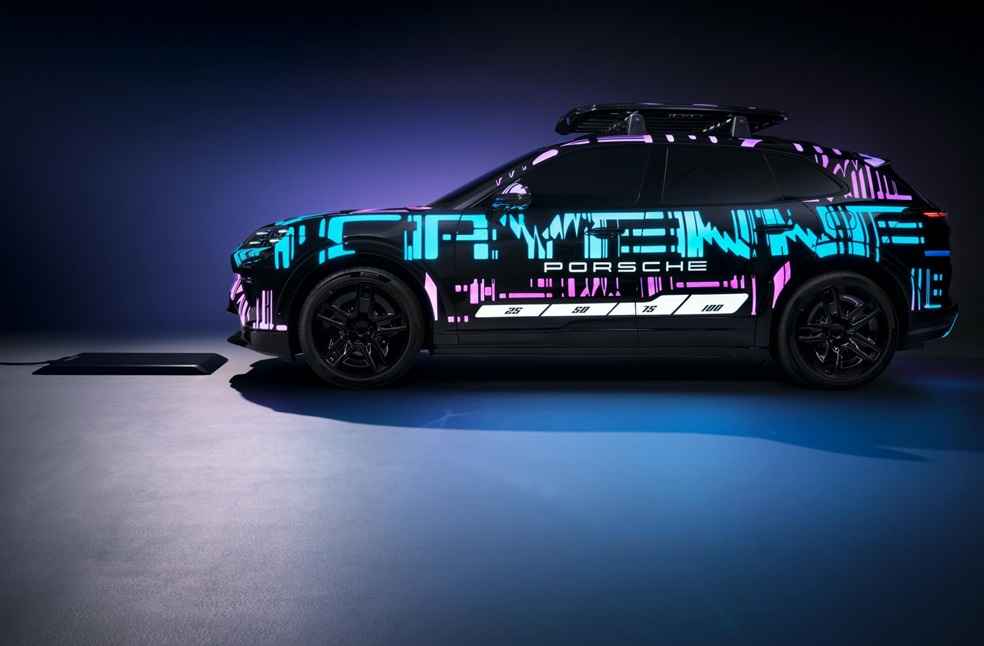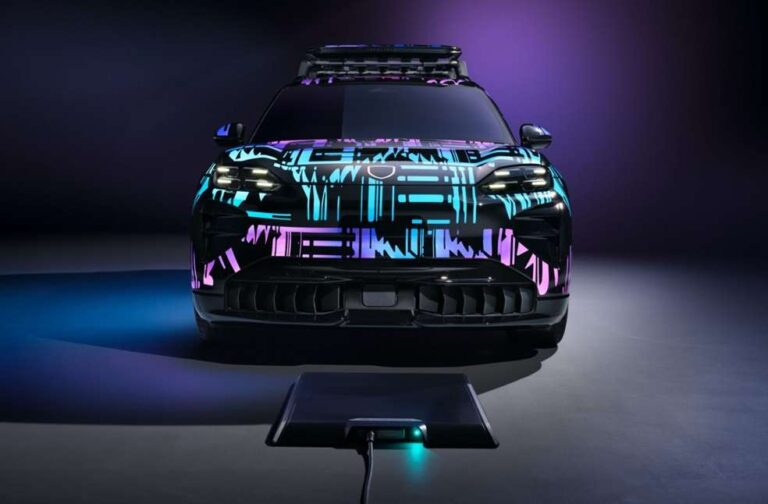Porsche recently introduced a wireless charging system for its electric vehicles, engineered to streamline the home-charging process. The technology has the potential to transform the EV charging process by reducing dependence on conventional wall-mounted units and sizable public charging installations.
With its compact configuration, Porsche asserts that home charging will become more convenient and efficient.
The charging pad is 2.3 inches in height, 78 inches in width, and 46 inches in length. Charging activation is initiated through the driver’s smartphone, after which both the charger and the vehicle prompt for a password to commence charging.
According to Porsche, this setup only requires initial authentication; thereafter, the system will automatically recognize the vehicle via its built-in Wi-Fi module whenever it is positioned over the pad.

The pad connects to a power supply that converts AC power into DC voltage. Weighing roughly 33 pounds, the unit incorporates a safety mechanism that halts operation whenever an obstruction is present and automatically resumes once the area is clear.
Charging takes place through a pair of copper coils. One coil receives the current, while the other harnesses and amplifies energy from the magnetic field produced by the system. This magnetic field enables wireless charging.
The principle is comparable to the technology used in mobile device chargers, though Porsche had to redesign it to remain compact and practical for automotive use, as simply enlarging the setup was not feasible.
The charging plate operates at 85 kHz with 2,000 volts in an oscillating circuit, enabling it to transmit power to the vehicle’s battery even when the car is misaligned by as much as four inches. Naturally, if the vehicle is positioned far outside this range, the system will not engage.

Overall, the system delivers 11 kW of charging power. For context, most home chargers provide between 3 and 7 kW, while standard public stations typically supply 11 to 22 kW. Although it’s not designed for rapid charging, the gentler output helps maintain long-term battery health and performance.
Porsche states that it plans to further refine its wireless charging technology for future vehicles. As development progresses, the company anticipates faster charging capabilities along with more sophisticated and compact system designs in the coming years.
GENERAL | Kia Unveils the New Telluride Ahead of its Debut at LA Auto Show





